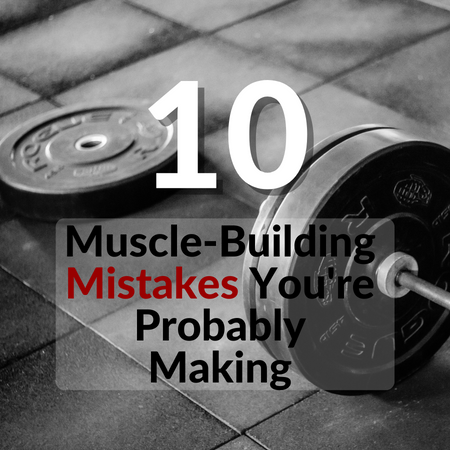
10 Muscle Building Mistakes You’re Probably Making
Everyone wants to build muscle.
Building muscle not only gives you a more aesthetically pleasing look, it also improves your overall health. Studies have shown that increased muscle mass is linked to reduced risks of hypertension, metabolic syndrome and cardiovascular diseases, among others. In addition, with increased muscle mass, you will have increased metabolism, stronger joints and tendons, improved posture and balance, and stronger bones. Furthermore, more muscle means more strength, which will help in Activities of Daily Living (ADL). And the list goes on.
However, building muscle is a challenging task for many. This is because of the misconception that you can get to the physique you want by simply going to the gym and lifting weights. Unfortunately, there is much more to effective muscle building than that. If you struggle with muscle building, make sure you’re not making any of these mistakes!

6 Tips on Staying Motivated
You know exercise and nutrition are good for you. It controls your weight, reduces risks of diseases, and improves your mental health and mood.
Doing it though, is another thing. In particular, overcoming the inertia to get started can be a huge first step.
But sticking to a workout and nutrition program is even harder. It takes deep, lasting, dedication, consistency and motivation. That’s why more than a third of the world’s population is overweight.
Furthermore, many think that exercise and nutrition have to be torturous, time-consuming and/or exhausting, therefore avoiding it.
Not having the right motivation coupled with the negative views of exercise and nutrition have caused millions of people to start a program only to quit halfway.
In this article, I’ll be sharing on some tips that can help you to stay motivated.

Training Pyramid of Importance
“What’s the best chest workout? Are squats better than lunges?”
Are these some questions you grapple with? You’re not alone

How Often Should You Train to Maximize Muscle Growth?
We all want to maximize our muscle growth in the shortest possible time. But we also know that if we train too often, the fatigue and soreness that kick in will not allow our body to recover in time. And this will mean muscle growth isn’t maximized in the long term.
So how do we know what’s the optimal number of times to train per week, assuming that you have the time for it? The short answer is that it depends on the individual, like any other training or nutrition recommendation that I give. The long answer? Read on to find out more! We will be looking at what an optimal frequency of training looks like, tradeoffs of higher and lower frequency, and how to reduce or increase your frequency and how to know if that works for you.
